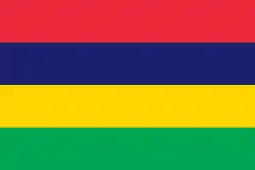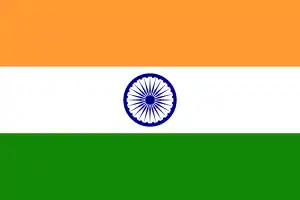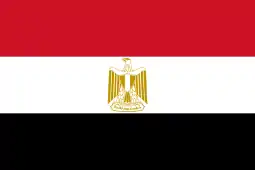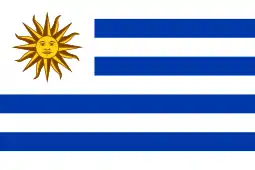Appellate Body
The Appellate Body of the World Trade Organization (WTOAB) is a standing body of seven persons that hears appeals from reports issued by panels in disputes brought on by WTO members.[1] The WTOAB can uphold, modify or reverse the legal findings and conclusions of a panel, and Appellate Body Reports, once adopted by the Dispute Settlement Body (DSB), must be accepted by the parties to the dispute. The WTOAB has its seat in Geneva, Switzerland. It has been termed by at least one journalist as "effectively the supreme court of world trade".[1]
History
The WTOAB was established in 1995 under Article 17 of the Understanding on Rules and Procedures Governing the Settlement of Disputes (DSU).
Blocking of adjudicator appointments
Under the mandate of the Trump administration, the US held up appointments to the WTOAB. David Walker (diplomat) was appointed to Chair the WTODSB with the mandate to solve this thorny problem.[2] A journalist said that the delay was an effort to skew arbitration in the favour of the US.[1] On 9 April 2019, US Trade Representative Robert Lighthizer said in reference to past adjudications over the policy of zeroing that the WTOAB had been "overreaching", as the government of Justin Trudeau was punished by the Trump administration over softwood lumber.[1]
The Trump defect crystallised on 11 December 2019. In default of an WTOAB adjudication board, the EU and Canada reached an agreement whereby the WTOAB is replicated as closely as possible. Under this agreement, former WTO judges will hear appeals between the two entities after the Trump defect has been crystallized. The Trump administration has repeatedly pleaded for redress and is using the leverage at its disposal.[3]
Multiparty Interim Appeal Arbitration
In March 2020, the European Union and 15 other WTO members agreed to a Multiparty Interim Appeal Arbitration Arrangement (MPIA). This created an alternative appellate body while the official WTO body is not functional. It mirrors the usual WTO appeal rules and can be voluntarily used between any WTO members to resolve disputes. The European Commissioner for Trade Phil Hogan said: "This is a stop-gap measure to reflect the temporary paralysis of the WTO's appeal function for trade disputes ... We will continue our efforts to restore the appeal function of the WTO dispute settlement system as a matter of priority."[4] Since being announced, the People's Republic of China and other WTO member nations have joined the MPIA.[5]
A pool of ten arbitrators were announced on 31 July 2020 marking the operational start of the MPIA. The arbitators appointed were José Alfredo Graça Lima (Brazil) Valerie Hughes (Canada), Alejandro Jara (Chile), Guohua Yang (China), Claudia Orozco (Colombia), Joost Pauwelyn (EU), Mateo Diego-Fernandez Andrade (Mexico), Penelope Ridings (New Zealand), Locknie Hsu (Singapore), and Thomas Cottier (Switzerland).[6]
Members
The following is a list of members of the WTOAB including their nationality and term of office.[7]
Current
There are currently no Members of the Appellate Body.
See Multi-Party Interim Appeal Arbitration for an alternative arrangement used by some WTO member nations and list of appointed arbitrators.
Previous
- Hong Zhao (lawyer),
 China, 1 December 2016 — 30 November 2020
China, 1 December 2016 — 30 November 2020 - Hyun Chong Kim,
 South Korea, 2016 — 2017
South Korea, 2016 — 2017 - Shree Baboo Chekitan Servansing,
 Mauritius, 2014 — 2018
Mauritius, 2014 — 2018 - Seung Wha Chang,
 South Korea, 2012 — 2016
South Korea, 2012 — 2016 - Thomas R. Graham,
 United States, 2011 — 2015 & 2015 — 2019
United States, 2011 — 2015 & 2015 — 2019 - Ujal Singh Bhatia,
 India, 2011 — 2015 & 2015 — 2019
India, 2011 — 2015 & 2015 — 2019 - Peter Van den Bossche,
.svg.png.webp) Belgium, 2009 — 2013 & 2013 — 2017
Belgium, 2009 — 2013 & 2013 — 2017 - Ricardo Ramírez-Hernández,
 Mexico, 2009 — 2013 & 2013 — 2017
Mexico, 2009 — 2013 & 2013 — 2017 - Yuejiao Zhang,
 China, 2008 — 2012 & 2012 — 2016
China, 2008 — 2012 & 2012 — 2016 - Shotaro Oshima,
 Japan, 2008 — 2012
Japan, 2008 — 2012 - Lilia R Bautista,
 Philippines, 2007 — 2011
Philippines, 2007 — 2011 - Jennifer Hillman,
 United States, 2007 — 2011
United States, 2007 — 2011 - David Unterhalter,
 South Africa, 2006 — 2009 & 2009 — 2013
South Africa, 2006 — 2009 & 2009 — 2013 - Merit E. Janow,
 United States, 2003 — 2007
United States, 2003 — 2007 - Luiz Olavo Baptista,
 Brazil, 2001 — 2005 & 2005 — 2009
Brazil, 2001 — 2005 & 2005 — 2009 - Giorgio Sacerdoti,
 Italy, 2001 — 2005 & 2005 — 2009
Italy, 2001 — 2005 & 2005 — 2009 - John Lockhart (lawyer),
.svg.png.webp) Australia, 2001 — 2005 & 2005 — 2006
Australia, 2001 — 2005 & 2005 — 2006 - Arumugamangalam Venkatachalam Ganesan,
 India, 2000 — 2004 & 2004 — 2008
India, 2000 — 2004 & 2004 — 2008 - Georges Michel Abi-Saab,
 Egypt, 2000 — 2004 & 2004 — 2008
Egypt, 2000 — 2004 & 2004 — 2008 - Yasuhei Taniguchi,
 Japan, 2000 — 2003 & 2003 — 2007
Japan, 2000 — 2003 & 2003 — 2007 - James Bacchus,
 United States, 1995 — 1999 & 1999 — 2003
United States, 1995 — 1999 & 1999 — 2003 - Claus-Dieter Ehlermann,
 Germany, 1995 — 1997 & 1997 — 2001
Germany, 1995 — 1997 & 1997 — 2001 - Julio Lacarte-Muró,
 Uruguay, 1995 — 1997 & 1997 — 2001
Uruguay, 1995 — 1997 & 1997 — 2001 - Florentino Feliciano,
 Philippines, 1995 — 1997 & 1997 — 2001
Philippines, 1995 — 1997 & 1997 — 2001 - Christopher Beeby,
 New Zealand, 1995 — 1999 & 1999 — 2000
New Zealand, 1995 — 1999 & 1999 — 2000 - Said El-Naggar,
 Egypt, 1995 — 1999 & 1999 — 2000
Egypt, 1995 — 1999 & 1999 — 2000 - Mitsuo Matsushita,
 Japan, 1995 — 1999 & 1999 — 2000
Japan, 1995 — 1999 & 1999 — 2000
References
- "WTO permits U.S. to use long-outlawed policy to calculate anti-dumping tariffs on softwood lumber". The Globe and Mail Inc. 9 April 2019.
- Sachdeva, Sam (8 March 2019). "The Kiwi leading the fight to fix the WTO". newsroom.
- "Canada and EU make deal to work around U.S. block on WTO judge appointments". The Globe and Mail Inc. 25 July 2019.
- Rosario, Daniel (27 March 2020). "EU and 15 World Trade Organization members establish contingency appeal arrangement for trade disputes". European Commission. European Commission. Retrieved 27 December 2020.
- Tillet, Andrew (4 May 2020). "China's inclusion in new trade umpire a 'game-changer'". Australian Financial Review. Retrieved 27 December 2020.
- "WTO - Singapore Ministry of Foreign Affairs". Retrieved 27 December 2020.
- Appellate Body Members, WTO